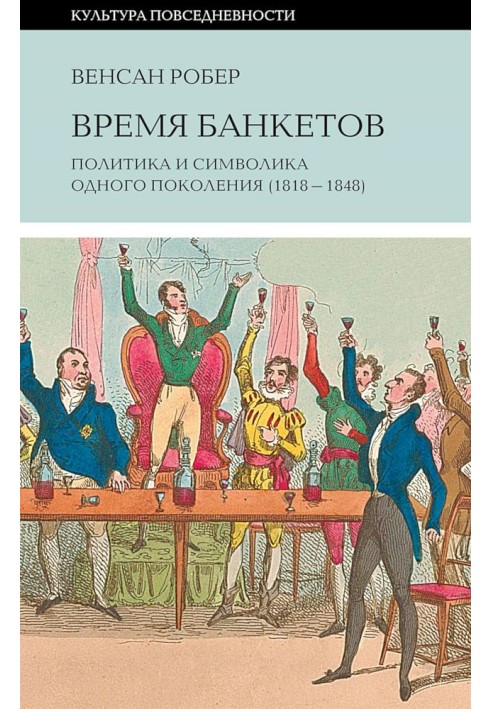Banquet time. Politics and symbolism of one generation (1818–1848)
 Instant download
Instant download
after payment (24/7)
 Wide range of formats
Wide range of formats
(for all gadgets)
 Full book
Full book
(including for Apple and Android)
Seeing the word “banquet” on the cover of a book translated from French, the reader may think that this is another story about French gastronomy. But Vincent Robert's book is not addressed to lovers of delicious food, but to people who are interested in political history and are looking for an answer to the question of when and why revolutions occur in a society that seems quite stable and orderly. The subject of the book is banquets organized in honor of opposition deputies by their supporters. The author not only sets out in detail the history of such meals and describes their structure, but also shows the place of the banquet, or feast, in the political metaphors of the 19th century. To do this, he draws on a wealth of material, from the works of Alexandre Dumas and Eugene Sue to the economic theories of Malthus. Most importantly, it shows how governments that stubbornly refuse to meet even the most moderate demands of the people lead to destruction. It is no coincidence that the last chapter of the book is called “Banning a banquet means unleashing a revolution.” The book was translated by Vera Milchina, a leading researcher at the IVGI RGGU and STEPS RANEPA.
The cover design uses an engraving by William Heath “Patriotic Dinner” (1823 ). Rijksmuseum, Amsterdam.
Data sheet
- Name of the Author
- Венсан Робер
- Language
- Russian
- Translator
- Вера Аркадьевна Мильчина











